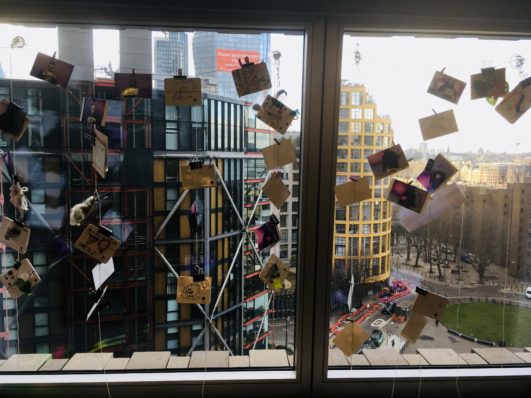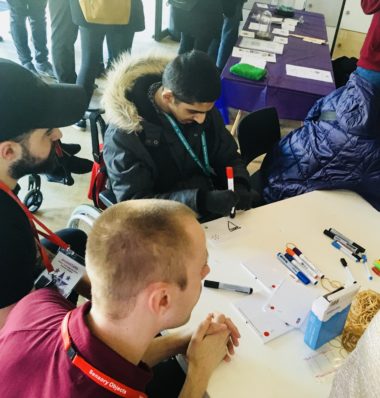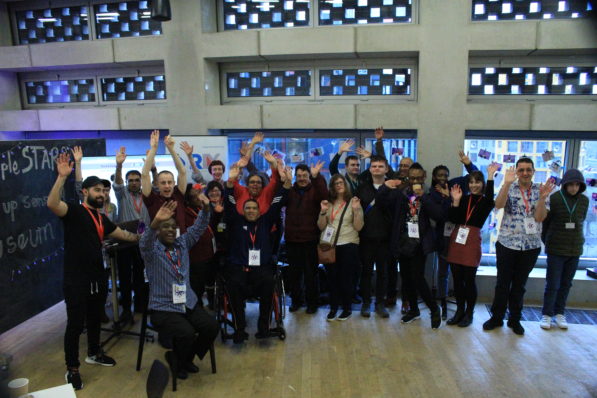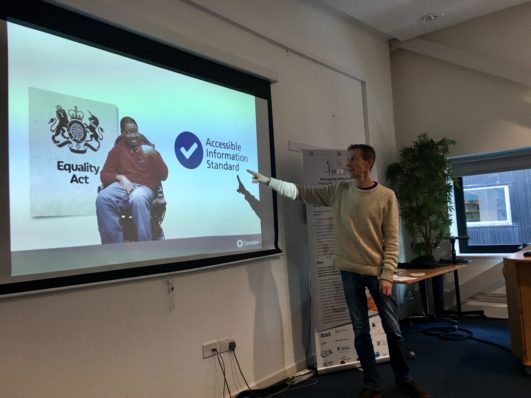
Our Rix Community Event on Tuesday 27th February may have taken place in blinding snow blizzard, but everyone attending walked away from the day with a clearer vision of how they can use Wikis to make information easier to understand and more person-centred.
The aim of the day was to go back to basics and re-calibrate people’s ideas about what makes a high quality Wiki.
Richard Lohan, Accessible Information Officer for the London Borough of Camden, shared Camdens’ Wiki portal of accessible public information Wikis. Richard explained his working approach to making & maintaining this exemplar set of Wikis that provide information about council services and local activities in Camden.
Follow the link to see how Richard’s consistent ‘one image, one sentence, one idea’ and use of photo-symbols and sound make information that is extraordinarily clear and easy to understand.
Richard delivered a workshop where he gave practical tips and guidelines on how to make information better for everyone. Perhaps the most vital point Richard stressed was that since the 2010 Equality Act, “making information easier to understand is, in fact, a legal requirement” and a reasonable adjustment that is the responsibility of all local authorities and education organisations to make.
Other presentations included Judith Appiah & Michal Tapps from the PurpleSTARS Project, who demonstrated how Wiki can be a useful tool for researchers & co-researchers alike.
Rix Co-Director Gosia Kwiatkowska also made a presentation that brought the focus of Wiki use clearly back to the principles and approach of Multimedia Advocacy. Breaking down the components of self-advocacy Gosia explained how “without putting these principles into practice, the Wiki is just a tool like anything else“.
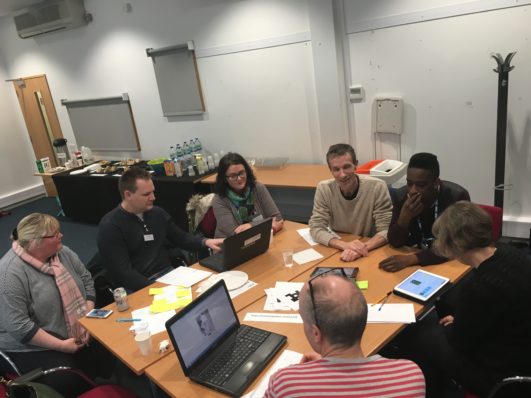
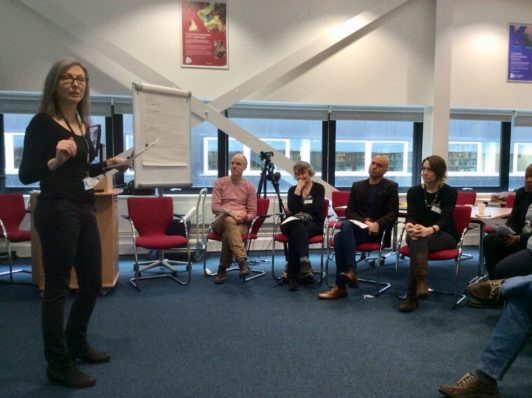
The adverse weather conditions (and perhaps the looming April deadline for transition to EHCP) meant for a smaller than usual attendance, however the smaller group gave us the opportunity to deliver a highly person-centred community event that really addressed the needs of everyone who came.
All attendees were asked to identify individual learning goals in the morning and by the end of the day had successfully met their learning objectives!


